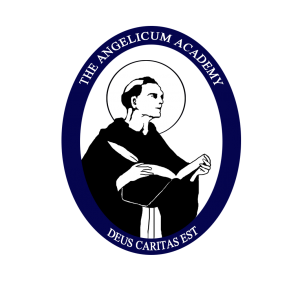by Patrick S.J. Carmack and Peter Redpath
We have been asked, many times, what our philosophy of education is in the Great Books Program, and even extended back to the earliest years of education. So on a plane flight back from Poland, where they were asked to give talks on this very subject recently, Peter and Pat drafted the following brief article, in response. It contains 13 notes or points, beginning from wonder and ending in wonder. Some of the terms may be unfamiliar to the reader, but hang in there through all 13 points and the sense of it will become clear. Keep in mind – philosophy is not a closed system of thought – rather it is an activity, initiated by wonder – gazing at the distant stars or a beautiful sunset.
1.) Philosophy is a natural human activity that first arises in people through the habit of sense wonder.
2.) As the act of a natural human habit born of sense wonder, philosophy is further engendered in us through acculturation; not through birth, doubt, faith, dreams, or supernatural acts.
3.) The first principles of philosophy are those proximate sources from which philosophical acts originate, for all people, everywhere, for all time, including:
a.) created beings endowed with natural, finite, intellectual and sense faculties;
b.) the habits of these natural human faculties;
c.) material beings, existing independently of our minds, that initially and essentially activate these faculties;
d.) conflicting communications from our senses and intellect that cause us to wonder and generate in us a desire to put wonder to rest through scientific investigation that aims to achieve demonstrative knowledge through a knowledge of first causes.4.) Strictly speaking, as a habit of investigation seeking knowledge of first causes in
every area of investigation (such as physics, mathematics, ethics, politics), philosophy aims at:a.) producing wisdom—a knowledge of the answers to the most difficult and profound questions, the most precise and complete understanding of first principles and causes, within a discipline of learning;
b.) achieving its highest form of knowledge by terminating its actions in the establishment of a science of first principles, a science that studies and seeks precisely to identify the nature and origin of all the first principles used by any science, art, or form of knowledge in the study of their respective subjects;
c.) knowing the whole truth about everything as far as this is possible according to the limited abilities of natural reason.5.) Philosophy seeks to achieve its natural perfection by terminating in establishing a science of first principles—metaphysics, because as the perfection of the highest of natural, intellectual, human acts, like all human acts, philosophy exists to help us become as wise as possible, in order to help us achieve happiness to the most perfect degree. We cannot become as wise as possible, however, unless we know, to the maximum extent humanly possible, the whole truth about everything, including about ourselves and the causes at work in the universe we inhabit.
6.) Because philosophy chiefly exists to help us understand, to the maximum extent humanly possible, all first principles, especially the most universal, the highest truth about everything, philosophy must:
a.) consider whether a highest First Principle and Cause of everything (God) exists; and
b.) be receptive to taking direction from a higher wisdom, if philosophical reason concludes that God exists or may exist.7.) The chief aim of human education is education for happiness—not education for a job. The means to such education is primarily conversation with great and wise persons, who have already advanced far along the paths of knowledge to wisdom.
8.) Because persons of great wisdom are rare and generally unavailable to us, we enter into conversation with them through their great books, which record their thought. In so doing, we soon discover how all the authors of great books used this same method of study themselves—conversing with or reading the great books of the wise before them as their starting points.
9.) Through the internal dialectical process—dialogue—found in these great books, often referred to as the “Great Conversation,” we may closely follow the development of the investigations conducted by these sages into the great ideas they have pondered and about which they have written. This manner of study is the normative approach to wisdom in the West.
10.) This manner of study is greatly facilitated by the reader engaging in a dialectic with other readers of the same books, probing and discussing these great ideas, and hopefully, carrying them even farther. This method of study is often referred to as the Socratic method of mutual inquiry and discussion, after the philosopher Socrates, who initiated its use as a deliberate method to obtain knowledge, in ancient Athens.
11.) Because the reading of the great books is sometimes difficult, young readers need to be prepared for them in a graduated process of habituation in reading books similarly rich in cultural material and thought, but written for their lesser intellects—the classics for children and young adults.
12.) Other education in the early years is geared primarily to prepare students for such studies, which requires mastery of grammar, phonics, reading, spelling, vocabulary, listening, speaking, writing, and, for the mathematical works: arithmetic, geometry, and so on.
13.) To prepare for such grammar school studies students need the raw material of sense experiences: walking, swimming, running, riding, hugging puppies and babies, looking at butterflies, frogs, the sun and stars. These pre-intellectual studies happen naturally, if children are left to it, until about age seven, augmented by some simple, elementary studies (such as learning the alphabet and to read simple books), that leave them plenty of time free to play, to look, and to wonder. Thus, again, wisdom begins in wonder.

